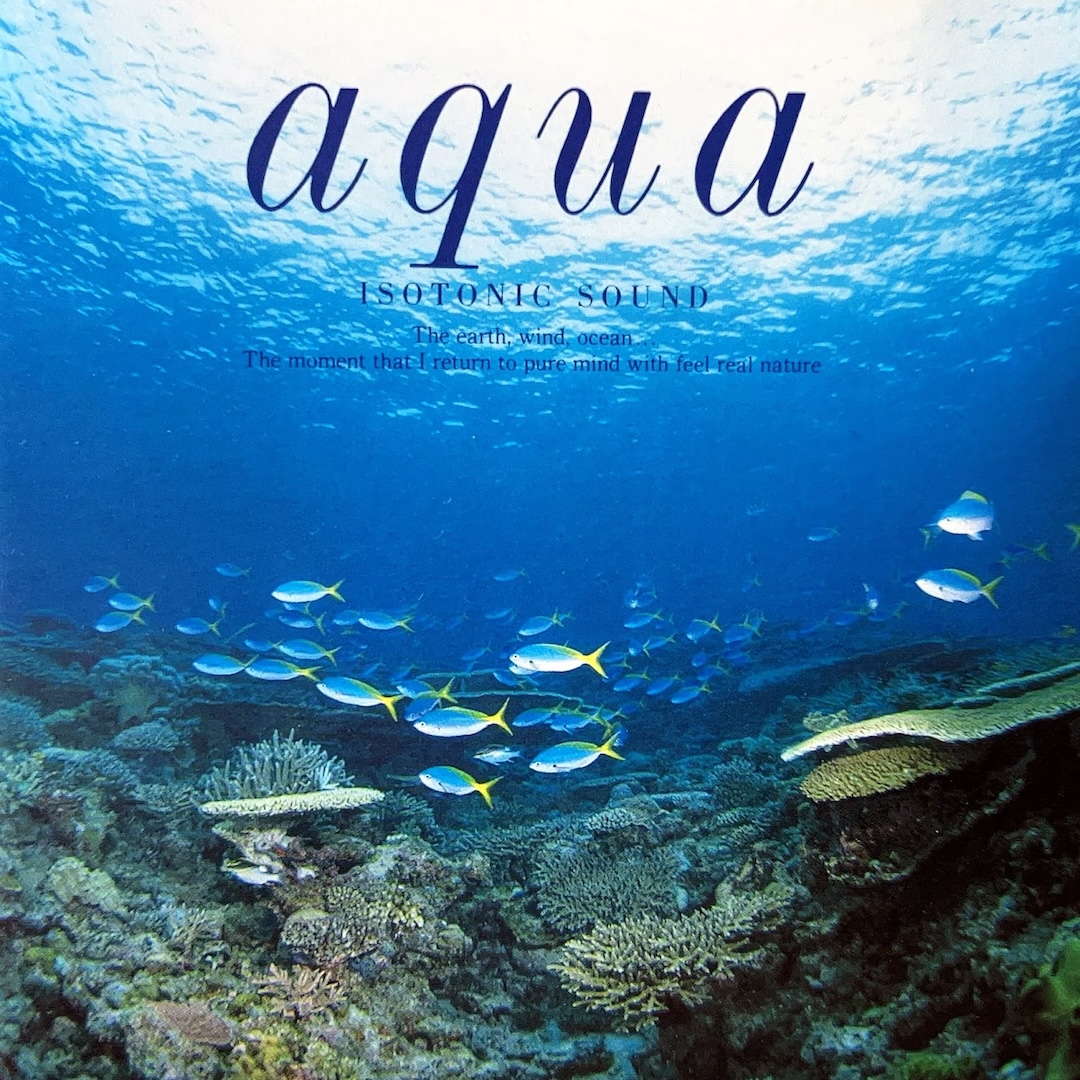Who says I don’t like a good mystery? I say this because it appears that lately I’ve been hitting on this theme: unsolved mysteries. Once again, I’m caught torn between sharing some work that absolutely pushes all my right buttons and not sharing it because: all stones left turned reveal nothing about who made it. In a way, Mirei Kawasaki’s ISOTONIC SOUND~Aqua captures this very essence and hits on this theme by treating us to ambient music that floats above truly murky waters.
If you try and search for any information about today’s album you’ll most likely encounter Della Records’s once-running “Isotonic Sound” series. It was in the early ‘90s when out of Tokyo’s Roppongi Hills, Della transitioned from their original business creating karaoke music and muzak into dipping their toes into so-called “aesthete” music.

Early compilation collections, like their Champion Selection Series, were at the forefront in this burgeoning “New Interior Music” niche that took the essence of ‘80s kankyō ongaku (environmental music) and further soften its edges to create meditative background music for a less-New Age Heisei era. Somewhat data-driven, they’d conduct studies to see just what kind of “mood music” spoke most to their potential demographic. It’s this idea of reimagining easy listening into a more modern framework that would spur the label to become popular among those who transited spas and onsens, where their music held a certain cache.
What Mirei Kawasaki’s ISOTONIC SOUND~Aqua provides is a peek into a certain series that was tailored towards those who wanted a blend of relaxation and actual music to listen to. Under the tutelage of Dr. Mariko Makino, Della created a biomusic center where contemporary composers could be invited to explore and create music made for healing and therapeutic purposes. It was here that Della’s “Isotonic Sound” series was born with a focus on music therapy.
Numbering above twenty releases, little-known composers and musicians like Mirei Kawasaki, Mitsuhiro Nagano, Takako Ishiguro and others, were given a platform to explore the headier side of ambient music through simple themes hovering around macro things, like rivers, earth, mist, and more, all set to tones tinged by alpha-wave fluctuation. As a lot of the music was meant to function as BGM (background music), one never knew just what one would get to hear when they’d press play on their CD deck.
Albums like Shinji Kinoshita’s ISOTONIC SOUND~Ocean mixed pseudo-tribal New Age with dolphin sound. Takako Ishiguro’s ISOTONIC SOUND~Mist blended the sound of brooks and streams with plaintitive impressionistic solo piano. Mitsuhiro Nagano’s ISOTONIC SOUND~Forest would find that perfect balance of field recordings and quite moving melodic orchestration. Full of genuinely great ideas (or at least music that could work as meditative CD-ROM interstitial music) one really had to dig through the CD rack to figure out what’s worth spending one’s hard-earned yen for.
For me it all goes back to Mirei Kawasaki’s ISOTONIC SOUND~Aqua. Divorced from the series. Divorced from any commission placed on the composer. Mirei Kawasaki’s ISOTONIC SOUND~Aqua is, at the end of the day, gorgeous music.
Songs like opener, “Aequidens”, have a certain refreshing quality that I can’t quite place in any of the other albums in the series, tonally, making it hit truer to Dr. Makino’s vision. Sonically, the choices Mirei makes make for a sparkly, bubbly form of ambient music that you actually look forward to listening to. I would be hard-pressed to put this in the background for someone to doze off to, as this is music that has a way of drawing you in. “Water Nymph” takes serious its search for aquatic melodies to funnel all its interesting ideas into interesting music.
One can imagine Mirei coming from the new school of composers like Joe Hisaishi who turned towards minimalism to create some kind of emotional maximalism. A song like “Aquatic Plant” seemingly births its impressive feel from very little musical ingredients. Rather than rely solely on environmental sounds or field recordings, Mirei creates a pseudo-organic atmosphere from electronic instruments that fit perfectly into this other water world.

In the end, Dr. Mikano’s goal of having music – actual music – to “provide a moment of comfort and ease at any time with its original sound” makes a perfect case for itself through Mirei Kawasai’s idea of “communicating with isotonic sounds, maintaining mental and physical health, and nurturing the energy to move towards a new future, it contributes to improving QOL (Quality of Life).” Here’s to bringing yours up with this one.
